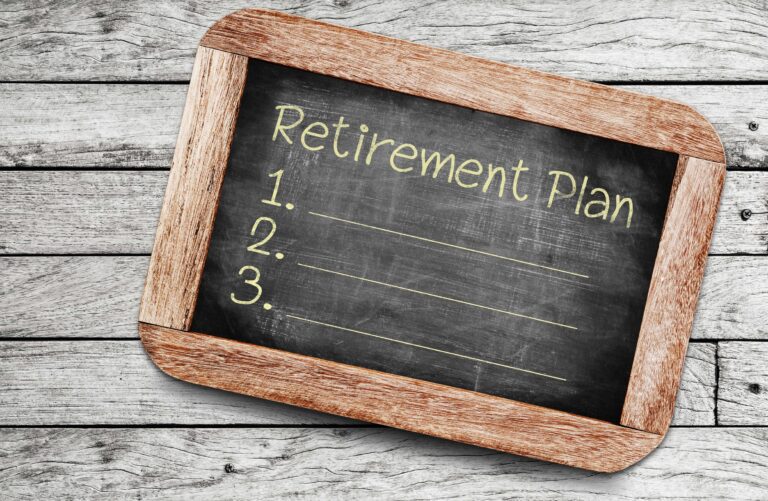
Whatever your plans are for retirement, it pays to begin planning well in advance, to give you the best chance of meeting your goals in later life. We often meet clients who are beginning to consider the end of their working career, but find choosing the right path difficult, for fear of making the wrong choice. Financial decisions taken at retirement are one of the most important many people make. This is largely due to the fact that the path chosen can have lifelong implications.
When beginning to consider retirement plans, there are a number of fundamental questions that need to be answered.
Deciding on the right time to retire may be down to personal choice, or it may be as a result of changes in the workplace that push you to reach a decision. For some, decisions will need to be reached some time in advance of the retirement date, due to contractual obligations, or the need to train a new member of staff to fill the role. In other instances, the decision may sadly be reached due to ill-health or inability to continue in the role.
An increasingly common choice is to reduce working hours gradually over time and ease into retirement, and this is where financial planning can help in determining alternative income sources that could be accessed to fund the reduction in salary or self-employed income, and maintain your lifestyle. Tax planning is often vital at this stage, as individuals are juggling employment and retirement income at the same time.
The most important factor that often determines the point at which an individual retires is affordability. The ongoing costs of maintaining the home, paying utility and other bills, and covering necessary spending such as food and transportation need to be considered. In addition, some may need to clear any outstanding debt prior to retirement, such as a mortgage, whilst others may wish to undertake home improvements.
Retirement introduces significant change, and one important point to remember is that many will have more time on their hands, which may be filled with hobbies, pastimes or travel. These will all have costs attaching to them, which need to be taken into account.
Calculating a monthly budget is a useful first step to see what regular and discretionary expenditure is likely to arise. It is also a good idea to build in a contingency for unexpected outgoings.
It is important to start looking at existing pension arrangements well in advance of a planned retirement date, to begin to determine what income could be generated in retirement. As a result, any gaps can be identified and this will allow time to make further pension contributions, or other savings arrangements to help plug the gap.
State Pension provision is usually the starting point from which to build a retirement income, and obtaining a State Pension statement is a good idea. This will provide an estimate of how much State Pension you are likely to get, which will be based on your National Insurance contributions. It will also let you know the date at which State Pension becomes payable.
For those who wish to retire earlier than their State Pension age, thoughts turn to producing an income from elsewhere to fund ongoing living costs. It is important to note that State Pension alone is unlikely to provide a comfortable retirement, and making the most of existing pension arrangements built up through employment, or personal pensions, will be a key building block of your retirement income.
An important step to take is to understand what pension arrangements are held. Obtaining up-to-date valuations can assist; however it may well be necessary to undertake further research and analysis to get the full picture in respect of the options for drawing a pension income, and to discover if there are any special features within the pension contract that could affect the decision making process.
It may also be worth considering whether you have any additional pension plans that you have lost touch with during your working life. We often meet clients who provide documentation relating to an old pension, which turns out to provide additional retirement benefits that they were not expecting.
As part of the retirement planning service we offer, we write to a client’s existing pension providers, and obtain full details of their arrangements. We take the time to fully analyse the plan, which can often reveal features which may not necessarily be apparent. These can include guaranteed annuity rates, guaranteed plan values or protected levels of Tax Free Cash.
Retirement income can, of course, come from other sources, too, and at this point, we can review other savings and investments held to consider how best to generate an income. By making changes to an existing portfolio, we can look to generate a sustainable income, in a tax-efficient manner.
Once existing pension arrangements have been analysed, the question of when to retire has been answered and a target income identified, it is time to start to consider how these goals can be reached.
Taking financial planning advice can make a real difference to the decision-making process, as we can take a holistic and impartial view of existing pensions and other assets and begin to set out a plan to reach your goals and objectives. We can assess what income can be generated from existing pensions, in conjunction with other savings income or property income. Other important aspects, such as tax-efficiency can be considered, together with wider planning issues, such as Inheritance Tax concerns.
Speak to one of our experienced advisers here to discuss the options and start to formulate your retirement plans.